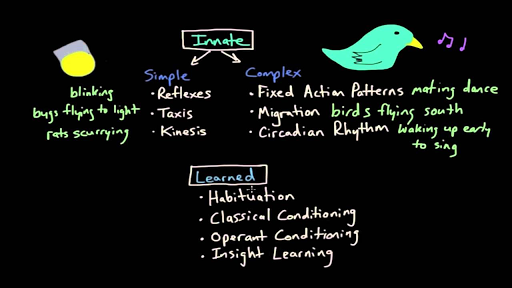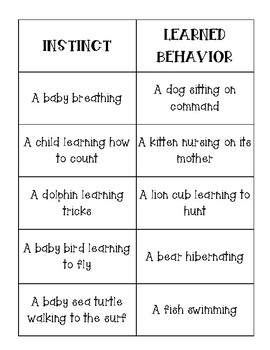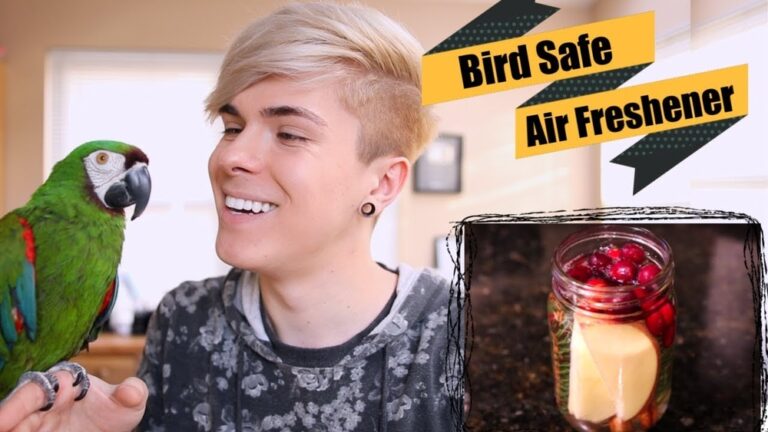What Is Bird Behavior Instinct Vs Learned Behavior
Have you ever watched a bird and wondered why it acts the way it does? Is it following instincts hardwired in its brain, or is it learning from its surroundings?
Understanding the difference between bird behavior instinct and learned behavior can change the way you see these fascinating creatures. This knowledge doesn’t just satisfy your curiosity—it can also help you connect with birds on a deeper level. Keep reading, and you’ll discover surprising facts that will make every birdwatching moment more meaningful.
Bird Behavior Basics
Birds act by instinct, doing things naturally without learning. Some behaviors they pick up by watching and practicing over time. Understanding the difference helps explain how birds survive and adapt.
Understanding Instinctive Bird Behavior
Bird instincts are natural actions birds perform without learning. These behaviors help birds survive. For example, many birds build nests without being taught. Instincts guide birds to find food and avoid danger. These actions happen automatically and are inherited from their parents.
What Is Learned Bird Behavior?
Learned behaviors develop through experience and practice. Young birds watch their parents or other birds to learn skills. They may learn to sing, find food, or recognize threats. Unlike instincts, these behaviors improve over time. Learning helps birds adapt to new environments or challenges.
How Instinct And Learning Work Together
Birds use both instinct and learning to survive well. Instincts provide basic skills needed at birth. Learning adds new skills and improves old ones. For example, a bird may instinctively know to fly but learns where to find food. This mix helps birds thrive in different places.
Instinctive Actions
Birds perform many actions without learning them first. These actions are called instinctive behaviors. Instinctive actions help birds survive and adapt to their environment right from birth. They do not need to practice or be taught.
These natural behaviors are crucial for birds to find food, avoid danger, and reproduce. Instinct guides them in complex tasks that seem automatic. This section explores how instinctive actions work in birds.
Innate Survival Skills
Birds have built-in skills to stay alive. These skills are present at birth and help birds face challenges. For example, many birds know how to build nests without help. They gather materials and shape the nest perfectly.
Some birds can fly soon after hatching, showing their strong instinct for movement. Instinct also triggers responses to threats, like hiding or flying away. These skills improve their chances of survival without learning from others.
Examples Of Instinct In Birds
Migration is a clear example of instinct in birds. Many species travel thousands of miles each year without guidance. They follow the same routes, even if they have never made the trip before.
Another example is feeding behavior. Baby birds open their mouths wide when a parent arrives. This action happens automatically to receive food. Songbirds also sing instinctively to attract mates and defend territory.
Learned Behaviors
Learned behaviors in birds are actions they develop after birth. These behaviors are not built into their genes. Birds learn from their surroundings and experiences. This ability helps them survive and thrive in changing environments.
How Birds Adapt
Birds change their actions based on what they see and hear. They try new ways to find food or avoid danger. Young birds watch their parents and copy their moves. This helps them learn faster and stay safe.
Some birds even solve problems by trying different methods. This shows their smart use of learned behavior. Adaptation allows birds to live in many places, from cities to forests.
Role Of Experience And Environment
Experience shapes how birds behave daily. Birds remember where food is or which places are risky. Their environment gives clues on how to act. Birds living near humans often learn to use trash as food.
Birds also learn songs and calls by hearing others. This helps them find mates and mark their territory. Without experience, birds cannot develop these important skills. Environment and experience work together to guide bird behavior.

Credit: www.khanacademy.org
Instinct Vs Learned Behavior
Bird behavior shows two main types: instinct and learned behavior. Instinct means actions birds do naturally. They do not need to learn these actions. Learned behavior happens when birds watch others or try new things. They change their actions based on experience. Both types help birds survive and live well in nature.
Key Differences
Instincts are inborn and automatic. Birds do them without thinking. Examples include building nests or flying south in winter. Learned behaviors need practice or watching others. Birds learn to find food or avoid danger this way. Instincts stay the same in all birds of a species. Learned behaviors can change by place or time. Instincts help birds act fast. Learned skills help them adapt to new situations.
Overlap And Interaction
Instincts and learned behaviors often work together. A bird may have an instinct to sing. It learns the exact song by listening to others. A baby bird has an instinct to open its mouth for food. It learns which sounds mean danger. Sometimes learned behavior can improve instincts. Birds in cities learn new ways to find food. Instincts give a base, and learning builds on it. Both are important for bird survival.
Impact On Bird Survival
Bird survival depends on both instinct and learned behavior. Instincts guide basic actions like migration and nest building. Learned behaviors help birds handle new challenges in their environment. Together, these behaviors shape how well birds live and reproduce.
Behavioral Flexibility
Behavioral flexibility means a bird can change its actions. Birds that learn new skills can find food in different ways. They can also avoid predators better. This flexibility helps birds survive in tough conditions. Birds that rely only on instinct may struggle when things change.
Adapting To Changing Habitats
Habitats change due to weather, humans, or other factors. Birds that learn to adapt can live in cities or farms. They find new food sources and safe places to nest. Birds with limited learned behavior might not survive these changes. Adapting to new habitats increases a bird’s chance of survival.

Credit: www.teacherspayteachers.com
Studying Bird Behavior
Studying bird behavior helps us understand how birds act and why. It reveals if their actions come from instinct or learning. Scientists observe birds in nature and in controlled settings. This research helps us learn about survival, communication, and social life in birds.
Methods And Observations
Researchers use many methods to study bird behavior. Watching birds in their natural habitat shows real actions. Cameras and binoculars capture their movements quietly. Experiments in labs test how birds react to new situations. Tracking devices record migration and daily travel. Field notes and video recordings provide detailed data. This mix of methods gives a full picture of bird behavior.
Notable Research Findings
Studies find some behaviors are instinctive, like nest building. Others are learned, such as using tools or songs. Young birds often copy adults to learn survival skills. Some species change behavior based on their environment. Research shows that both instinct and learning shape bird life. Understanding this balance helps protect birds and their habitats.

Credit: www.liveworksheets.com
How Smart Pets Lover Can Help You with What Is Bird Behavior Instinct Vs Learned Behavior
Exploring Bird Behavior: Turning Knowledge into Practical Learning
Understanding the delicate dance between instinctive actions and learned behaviors opens up exciting ways to connect with our feathered friends. When you observe a bird’s natural instincts—like nesting or foraging—alongside behaviors they acquire through experience, you’re witnessing the foundation of their survival and adaptability.
For those curious about studying bird behavior more deeply, practical learning can be both rewarding and insightful. Start by keeping a simple journal of your observations, noting which actions seem instinctual versus those shaped by environment or training. This approach ties directly into the “Studying Bird Behavior” and “Impact on Bird Survival” topics we explored earlier, helping you appreciate how birds navigate their world.
- Try gentle interaction techniques to encourage learned behaviors, such as teaching a pet bird simple tricks or social cues.
- Observe wild birds in your backyard or local park, paying attention to instinctive patterns like migration or feeding habits.
- Use resources from trusted organizations or reach out to experts who share your passion for avian care.
At Smart Pets Lover, we believe that every chirp tells a story worth understanding. If you ever want to dive deeper or need guidance on bird care, feel free to connect with communities and experts dedicated to nurturing that special bond. Remember, learning about bird behavior isn’t just fascinating—it’s a step toward becoming a more confident and compassionate pet parent.
Frequently Asked Questions
What Is Bird Instinct Behavior?
Bird instinct behavior refers to natural actions birds perform without prior learning. These behaviors are inherited and crucial for survival, like migration and nesting.
How Does Learned Behavior Differ In Birds?
Learned behavior in birds develops through experience and environment. Birds adapt by observing others or trial and error, such as recognizing predators or finding food.
Can Birds Change Instinctive Behaviors?
Birds can modify instinctive behaviors through learning. However, instincts provide a foundation, while learning allows flexibility in changing environments.
Why Is Understanding Bird Behavior Important?
Understanding bird behavior helps in conservation and wildlife management. It aids in protecting species and improving habitats effectively.
Conclusion
Bird behavior shows both instinct and learning at work. Instincts guide birds to act without thinking. Learned behavior happens when birds watch and practice. Both types help birds survive and adapt. Instincts give quick, natural reactions. Learning allows birds to adjust to new situations.
Understanding these behaviors helps us appreciate birds more. It also shows how animals grow and change. Nature uses both instincts and learning for balance. Watching birds teaches us about life and nature’s ways.







